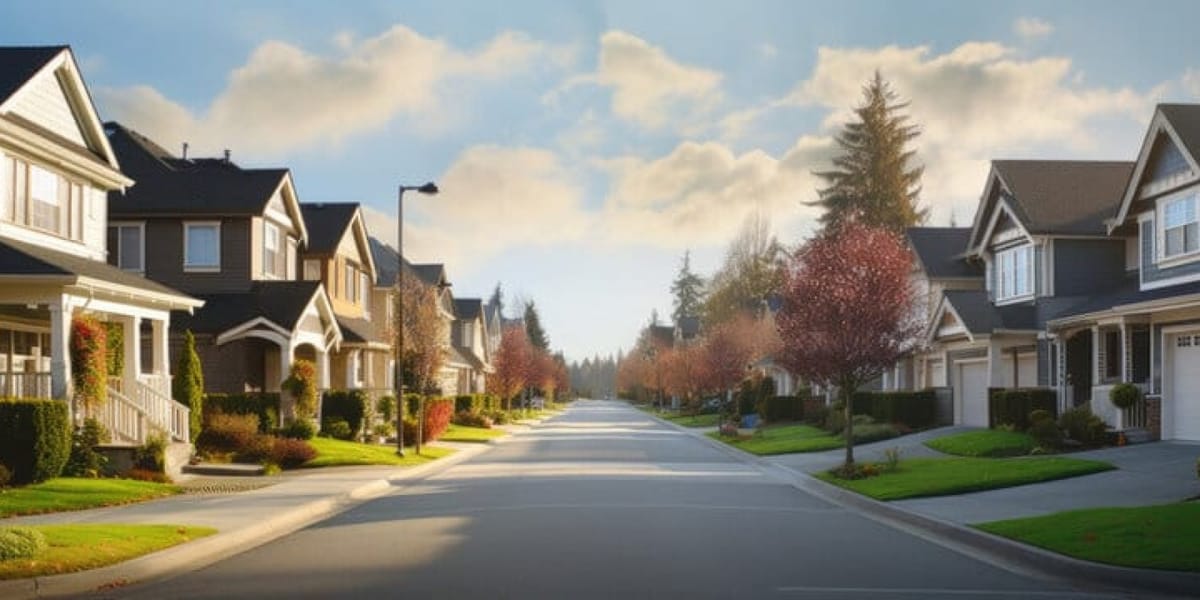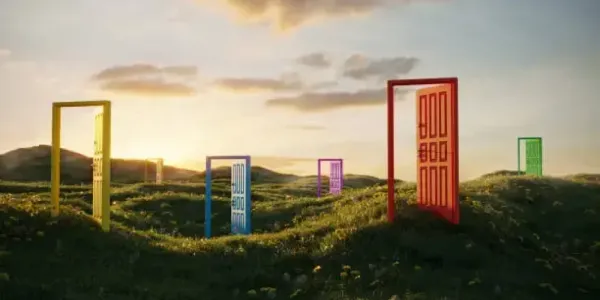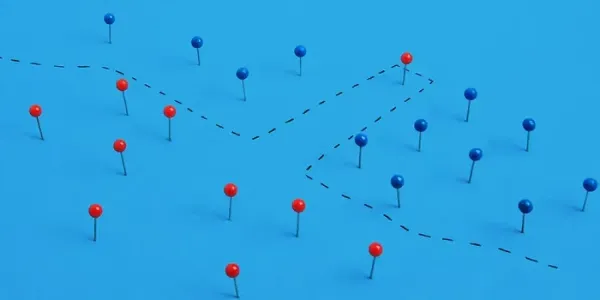Weekend Edition: Something new about this version of the same old violence?
The ways that our accelerating and evolving political violence feels familiar and the subtle ways it feels new are clues to our history and to a different future.

I've been struggling the last two weeks – like most folks I talk to – to find something both true and useful to say about political violence in American civic life. I wrote a lot about this three years ago when Paul Pelosi was attacked and not sure I have something more useful to say now, and yet our world feels different, this moment feel different...
Violence has always been a part of our American history, the deep mythology we have built around that history, and our present. The kind targeted political violence that we saw last week take the life one of the most charismatic movement leaders of young American conservatism has always been familiar but is becoming more common. We cannot allow it to become normal or acceptable – and must find ways to push it out beyond the edges of acceptable civil disobedience, protest, advocacy, or political action. And those ways must become central to how we conduct our shared civic life regardless of party affiliation, identity, community, or ideology.
Hard power and coercion are not valid tools in a healthy people-centric, community-driven free society or healthy democratic culture much less embodied and codified in democratic governance – no matter how much both have defined American civic life for many. But too many antidemocratic features of our republic, too much of the deep and increasingly seemingly inevitable economic inequality, and too much of the structural inequity in America's systems feels so deeply engrained in their unfair, undemocratic design that then asking citizens to continuously take the moral high ground and conform to the rules of law and morality while those with power flout and abuse them so cravenly and openly feels like yet another deeply inauthentic, unrealistic appeal to participate in a fallacy, in a performative expression of meaningless obedience that only serves to embed, embody, and validate our own civic impotence.
And then when tragedy strikes and violence invades the performance, we all express our shock and fear that someone might go too far. A new act in the performance ensues about who's most outraged and who's most responsible, a kind of mutual dissembling and alienation that leaves everyone and no one to blame and leaves most people without the willingness or agency to do anything about it. And so we return to the usual performance and hope the next act of madness isn't soon. But political violence is getting more frequent, and if our shock and opprobrium includes any version of "over the line" or "beyond the bounds" these acts are not mad or monstrous beyond our comprehension even if they are not rational or acceptable. If we are willing to look deeply at the dysfunctional nature of American civic life we can understand why some turn to the dangerous and seductively oversimplified Machiavellian conclusions of violence as valid response to the civic dysfunction and conflict we see and feel everyday. Combined with the dehumanizing extremism of political rhetoric of enemies and warfare as opposed to opponents and persuasion and the sorting pressure and alienating, isolating loneliness of modern media and civilization leaves community-centered civic life feeling remote and unattainable and a sense of broad interconnectedness and shared civic duty to all our neighbors almost naive in the face of the dysfunctional energy of conflict-centric political theater.
We are what we practice – we are how we are. We cannot pick up pur enemies tools (see: Gavin Newsom) and without our morality collapsing just as our culture of the rule of law has collapsed as we only follow the rules we agree with and abhor the immortality of our enemies while taking on their tactics (see: Luigi Mangione and the growing preference of governing by executive order). When we do those things and then embrace rage and outrage as the base tone and tenor of civic life, we give up the rule of law and embrace an amoral society. Those aren't temporary strategic choices. They aren't simple, easily reversible choices. They are the remaking of society into something profoundly, dangerously, and potentially irreversibly antidemocratic.
There has been a lot of talk in articles like this one from the New York Times about the shit show of extremist memetic violence for the very chronically online. A couple of important, powerful passages but also some slight misses on the key insights that might help us distinguish what is new about where we are....
"Today’s internet for most Americans, but especially for those like Mr. Robinson, who came of age on social and streaming platforms, is an immeasurably potent vibes machine. One powered by a complex fuel of negative emotions — hatred, rage, hopelessness, nihilism, grievance, cynicism, paranoia, discontent and addiction. It’s a machine more than capable of constructing false realities and corroding our lived experiences."
For those like Tyler Robinson, it isn't just about him being chronically online. This dumpster fire is an uniquely dangerous experience for young white men new to the pain and fear of uncertainty and who are tightly tied into the false masculine culture of American tactical fetishism.
"To be a young person on large areas of the internet, in other words, is to exist in a state of perpetual conflict, where every action, every event, is coded with political significance, couched in irony or presented in a combative posture, starting from the moment one goes online."
It is also largely a consequence- and responsibility-free experience driven by distance and anonymity.
"That his killer might have been in pursuit of a similar moment of viral conflict is a grim encapsulation of the nightmare cesspit we’ve entered."
In a healthy small "d" democratic culture, conflict has valid boundaries that we share. Our willingness to ignore our allies overreach and hyperbole and willingness to punish and dehumanize our opponents as enemies contributes to the sense that there are no invalid, no morally unacceptable tactics. And our unwillingness to recognize the power and inevitability of how we move in community leaves us open this extreme downstream consequence of a subtle Machiavellian outcome-centric achievement-as-virtue culture.
We have to be serious and specific about the spaces and places where we build community and the values at work in their designs. There is a human social psychology equation at work here:
Bonding with others in online or offline community rituals leads to safety and validation which leads to legitimacy when rewarded. But rewarded for what? For bridge building and civic productivity? For collective rage and alienation of others?
If that bonding is about connecting and validating communities that have been traditionally banned from access to power or disjointed minority groups who need that safety for survival, then it can be great way to build deeper complexity and the creativity they can spawn into society. If that bonding is over extremism and misanthropic nihilistic responses to the perceived loss of privilege and value and isn't interrupted very, very early in the radicalization equation, we get Tyler Robinsons proliferating everywhere.
This is how these systems we rely on for social connections and storytelling are not "neutral". The same mechanism used in service of different values produce very different things for society.
Start with de-escalation
So what do we do – in a moment where it seems more and more of us and our neighbors believe that undoing these dysfunctions is even possible? No matter how intractable our dysfunction feels, how we move through the world changes it even if in small ways. The media and technology platforms exacerbating the worst paths and patterns of human behavior for profit must be reigned in by public regulatory action and are nearly impossibly to resist individually without opting out of them entirely. Giving up the seductive reach and network effects and moving our digital communities and communication to non-algorithmic platforms is the only answer in the short term.
Carefully, consciously weave a new civic fabric
Once out of the river taking us toward the waterfall, anything that makes violence less common and increases the distance between productive conflict and dangerous conflagration is necessary: validity and agency for people, listening and connecting civic participation to the expression of institutional power, shared civic experiences that create safe bridges especially for the least safe communities in our society who most need to to experience the agency and responsibility of shared power in a healthy democracy in practice, systemic reforms that reduce the validity, penetration, and effectiveness of extremism and radicalization. Anything that rehumanizes us to our opponents rather than dehumanizes our neighbors as enemies moves us in the direction of a civic life that is more likely to serve people and less likely to be dangerous. Start small: listen to others, that small, beautiful act of rebellion, and then do something, anything, a food drive, a park committee, a shared garden with people you don't already know. Seek others as source. Do something: get community.
If nothing else in this moment, we can start to ask ourselves about the nature of the norms and values and rewards at work in the systems and spaces we seek community – and whether if we might could be seeking community and interconnectedness in different, healthier spaces that might shift the nature of our civic life. And we can start to change how we accept or reject and react and respond to the worst behaviors in our civic life by creating a check for ourselves on our reactions: how would we feel if one of our allies used a tactic that our opponent embraces that makes our blood boil and vice versa? We can start to reclaim the satisfying, joyous experience of a civic life shaped by the predictability of moral clarity on our own without waiting for the powerful to change the behaviors that have made and keep them powerful.
At the end of the day, we are neighbors – like it or not, connected or not, shared reality or not. And it is how we are together defines that relationship. That relationship can be careful and curious and intentional or defined by ignorance, bias, carelessness, and accident or shaped by the outright cruelty and danger of small, uncreative zero-sum thinking. But there is no not-in-relationship. Each version of that relationship is work. Each can be unsettling. But only one leads toward community and the possibility of a just, joyous future. So how will we be?
Last updated: 21 Sep 2025




